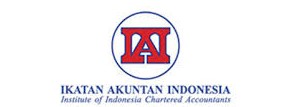Pengaruh Machiavellian dan Religiusitas terhadap Niat Melakukan Whistleblowing
Abstract
This research intends to examine the impact of Machiavellianism and religiosity on whistleblowing intentions. This research is quantitative. This research used a purposive sampling method with 201 respondents from 25 SKPD in Sijunjung Regency. This data was analyzed using multiple regression analysis in SPSS version 23. The first variable is Machiavellian which has a negative effect on whistleblowing intentions, where t count is 2.072 > t table 1.974 at sig,0.040 < 0.05. The second variable is religiosity has a positive effect on whistleblowing intentions, where tcount is 2.096 > t table 1.974 at sig 0.038 <0.05.
References
Ajzen, I. (1991). The Theory of Planned Behavior The Theory of Planned Behavior. 5978(August). https://doi.org/10.1016/0749-5978(91)90020-T
Al-Azhar. (2018). Influence of Machiavellian Character and Ethical Environment to Whistleblowing Intention. Science and Technology. https://www.estech.org
Anandya, D., Easter, L., & Ramadhana, K. (2021). Hasil Pemantauan Tren Penindakan Kasus Korupsi Semester I 2021. Indonesia Corruption Watch, 39. https://www.antikorupsi.org/sites/default/files/dokumen/Laporan Pemantauan Tren Penindakan Semester I 2021.pdf
Barnett, T., Bass, K., & Brown, G. (1996). Religiosity, ethical ideology, and intentions to report a peer’s wrongdoing. Journal of Business Ethics. https://doi.org/10.1007/BF00412815
Dalton, D., & Radtke, R. R. (2013). The Joint Effects of Machiavellianism and Ethical Environment on Whistle-Blowing. Journal of Business, 153–172. https://doi.org/10.1007/s10551-012-1517-x
Fitri, F. A., Indayani, & Tursina, A. (2019). Effect of religiusity, locus of control, and professional commitment to whistleblowing intention. Opcion, 35(89), 2899–2921.
Gokce, A. T. (2015). Relating teachers’ whistleblowing tendency and personal features: Machiavellianism, religiosity, and utilitarianism. Issues in Educational Research, 25(4), 517–534.
JurnalSumbar.com (2022). Kejari Sijunjung Tetapkan Tiga Tersangka Terkait Kasus Korupsi APB Nagari Silokek Capai Ratusan Juta. Diakses 13 Maret, dari https://jurnalsumbar.com/07/kejari-sijunjung-tetapkan-tiga-tersangka-terkait-kasus-korupsi-apb-nagari-silokek-capai-ratusan-juta/
Mansor, T. M. T., Ariff, A. M., Ngah, A. H., & Hashim, H. A. (2022). Religiosity and External Whistleblowing Intention. Asian Journal of Business and Accounting, 15(2), 111–147. https://doi.org/10.22452/ajba.vol15no2.4
Nayir, D. Z., & Herzig, C. (2012). Value Orientations as Determinants of Preference for External and Anonymous Whistleblowing. Journal of Business Ethics, 107(2), 197–213. https://doi.org/10.1007/s10551-011-1033-4
Puni, A., B.Agyemang, C., & S.Asamoah, E. (2016). Religiosity, Job Status and Whistle-Blowing: Evidence from Micro-Finance Companies. International Journal of Business and Social Research, 6(2), 38. https://doi.org/10.18533/ijbsr.v6i2.916
Rahmadani, A. (2018). Pengaruh Orientasi Etika Relativisme, Intensitas Moral, Komitmen Organisasi, Sifat Machiavellian Dan Tingkat Keseriusan Kecurangan Terhadap Intensi Untuk Melakukan Whistleblowing Internal (Studi Empiris Pada OPD Kabupaten Rokan Hilir). JOM FEB, 1, 1–15.
Rifki. (2018). Pengaruh Komitmen Profesional, Personal Cost, Locus Of Control, Sifat Machiavellian Dan Tingkat Keseriusan Kecurangan Terhadap Intensi Untuk Melakukan Whistleblowing Internal. JOM FEB, 1.
Setyawati, I., Ardiyani, K., & Sutrisno, C. R. (2015). Fakto-Faktor yang Mempengaruhi Niat Untuk Melakukan Whistleblowing (The Factors Influencing Internal Whistleblowing Intentions). Jurnal Ekonomi & Bisnis, September, 22–33.
Siallagan, H., Rohman, A., Januarti, I., & Din, M. (2017). The effect of professional commitment, attitude, subjective norms and perceived behavior control on whistle blowing intention. International Journal of Civil Engineering and Technology, 8(8), 508–519.
Suryono, E., & Chariri, A. (2016). SIKAP , NORMA SUBJEKTIF , DAN INTENSI PEGAWAI NEGERI SIPIL. Jurnal Akuntansi Dan Keuangan Indonesia, 13(1), 102–116.
Suzila. (2016). Pengaruh Sifat Machiavellian Dan Lingkungan Etika Terhadap Niat Melakukan Whistleblowing (Studi eksperimentasi pada SKPD di Lubuk Sikaping, Kabupaten Pasaman). Jurnal Eksplorasi Akuntansi, 64(2), 361–372. https://doi.org/10.1515/bpasts-2016-0041
Taylor, E. Z., & Curtis, M. B. (2013). Whistleblowing in audit firms: Organizational response and power distance. Behavioral Research in Accounting, 25(2), 21–43. https://doi.org/10.2308/bria-50415
Transparency International (2022). Corruption Perceptions Index. Diakses 13 Maret 2023, dari https://www.transparency.org/en/cpi/2022







.png)
.png)
